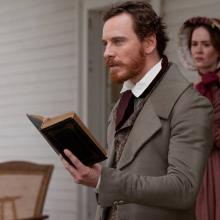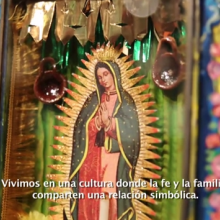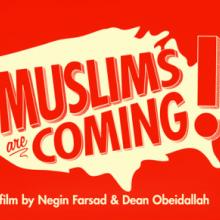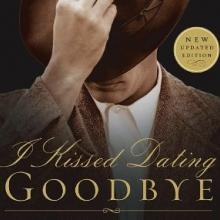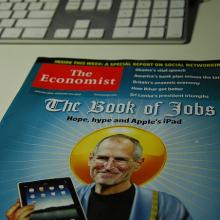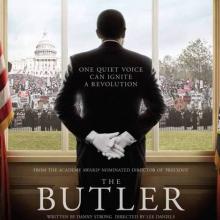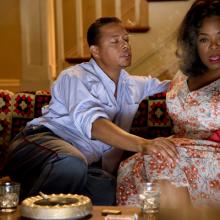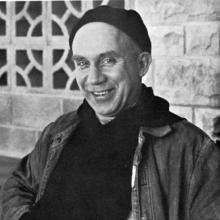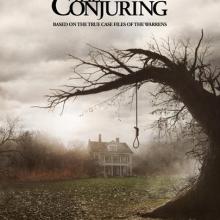Film
I pre-screened 12 Years a Slave the same weekend I saw Gravity. The two films couldn’t be more different, although they do have some fascinating (if not immediately obvious) commonalities.
As for commonalities, they’re both powerful and both deserve to be seen. Both are about people trying to get home — one, in a harrowing adventure that takes several hours, the other in an agonizing 12-year struggle. The protagonists of both movies demonstrate heroic resilience and courage. One struggles with physical weightlessness, the other with a kind of social or political weightlessness.
Although Gravity impressed and fascinated me, 12 Years a Slave affected me and shook me up. Now, several days later, scenes from the film keep sneaking up on me and replaying in my imagination — three in particular.
I watched 12 Years a Slave today. The film is based on Solomon Northup’s autobiography by that name. Northrup was a free black man living in Saratoga, N.Y. He was lured away from his home to Washington, D. C., on the promise of lucrative work and was kidnapped, transported to Louisiana, and sold into slavery. He was rescued 12 years later.
Some of the questions and issues that the movie raises are: What right do people have to own others? Do money and might make right? Unjust laws — such as slave laws — exist. It just goes to show that something can be legal, yet morally wrong. Still, laws come and go. We must not confuse laws with rights, which are universal and enduring truths that do not change. What is true and right and good is always so. So, too, that which is evil is always evil. Even if unjust laws are overturned and abolished, evil can still return in other guises.
I asked myself as I watched the movie, “Could it happen again?” Some of us may think, “Surely, something like this could never happen in our day.” And yet, people are abducted and sold into various forms of slavery here and abroad on a daily basis. Granted — people are not publicly bought and sold on the slave block in America today because of skin color; however, people are enslaved based on race and class divisions.
As a boy growing up, Joanna Maria Cifredo wasn’t like her brothers.
“My brothers looked at females because they wanted to be with a female,” Cifrado says, in new video resource by the Human Rights Campaign that premiered Oct. 1. “I looked at females more like, ‘Oh, I wish I was her.’ ”
Now, Joanna has decided to physically identify as a woman full time.
Her voice joined many others in Before God: We are All Family, a new film focused on the experiences of Latina LGBT people. She also participated, along with her mother Maria Vega-Cifredo, in a discussion panel that included the filmmaker at the first public viewing of the resource at the GALA Hispanic Theater in Washington, D.C.
Focusing on the important role family and faith play in Latino communities, the video resource is the newest component to a bilingual discussion guide produced by the HRC and the National Latina/o LGBT Human Rights Organization, among others. The organizations developed the guide with the aim of helping Latinos have a conversation about faith and LGBT inclusion.
The guide, written by Rev. Dr. Miguel A. de la Torre, with help from Rev. Dr. Ignacio Castuera and Lisbeth Melendéz Rivera, gathers 14 testimonies into six chapters, each with stories, questions, and exercises focused on what it means to be LGBT and Latina. Inside the guide, created in 2011, are sections on family, the gift of our bodies, the Bible, and solidarity.
Reviews of the new hit movie Gravity note that it’s an unusually fine science fiction film. What they don’t mention is that the main character represents an increasingly common theme in American religion: The spiritual “none of the above.”
Yes, the special effects are splendid. And I’ll take the word of astronauts who say the visuals capture amazingly well what it’s like to work in the microgravity of near-Earth orbit.
But there are moments where spiritual and philosophical themes take center stage.
(Spoiler alert: I’ll give no more away than I’ve seen in most reviews, but if you really want to know nothing about the movie, see it first.)
LEE DANIELS’ The Butler, a century-spanning tale of race in the United States and service in the White House, is a dream of a film—by turns historically realistic and magically fable-like. It’s a perfect companion piece to last year’s Django Unchained, in that case a movie whose tastelessness wrapped up as fabulous entertainment forced audiences to engage with a deeper level of the shadow of U.S. history.
Based on the story of Eugene Allen, a black man who served multiple presidents in a White House that took its own time to desegregate its economic policies for domestic staff, The Butler begins with a rape and a murder of plantation workers by the son of the boss. The ethical quality of the film is immediately apparent. This horror is not played for sentiment, nor even spectacle, but to evoke the very ordinariness of monstrosity.
This makes The Butler a rare film: one more interested in confronting us with a kind of previously unspoken truth than in goading us to feel the catharsis of guilt-salving by association. (It’s the antithesis of films such as Mississippi Burning, which use white protagonists to tell black stories and appear to believe that we can somehow participate in the virtue of the civil rights movement just by watching a movie about it.) The makers of The Butler have told a kind of truth about the struggle for “beloved community” that has rarely been seen so clearly on multiplex screens. The film illustrates the serious and painful work of nonviolence and invites us to consider the political and cultural tensions within the black freedom struggle, while giving a more humane perspective on the presidency than is often the case. We can hope the door is now open to more reflective cinema about the unfinished business of the black civil rights movement, broken relationships, traumatic memory, and how we tell the story of who we are.
EVERY SUMMER brings the end of the world. But not since 1998’s Deep Impact and Armageddon both threatened the end of the world with objects from space has there been such apocalypse redundancy in summer blockbusters: This year, class wars, real wars, ecological exhaustion, aliens, and zombie viruses destroyed our planet in as many different ways.
In her excellent e-book The Zombies are Coming!, Kelly J. Baker reminds us that apocalyptic fantasies have been part of the popular American imagination since at least the Puritan hellfire sermon. Even without a common religious narrative to guide them, end-of-the-world stories mostly function as a form of cultural critique and utopian longing. We can only imagine a desired future out of the ashes of the utterly destroyed present. In other words, things are going to have to get a lot worse before they get better.
If Baker is right that we seize on apocalyptic fantasies both to express a deep feeling that something is very wrong with our current state of affairs and to imagine some better alternative, then this summer’s world-ending movies display a profound lack of imagination. Most of them are not even particularly good at conceiving the end of the world, and none of them offer us a vision of how things might be different.
After Earth, for example, is more an overblown coming-of-age story than an apocalyptic thriller. The film follows Kitai (Jaden Smith) as he is guided via walkie-talkie by his wounded father (Will Smith) across an unknown planet. The planet turns out to be Earth 1,000 years after humans have high-tailed it to outer space. But since we never learn why humans had to leave, the apocalyptic frame feels like little more than an excuse to raise the stakes of Kitai’s journey and a chance to show off some fantastic technology. Kitai’s array of super-cool gadgets pretty much guarantees the creatures he meets will have to be more menacing than anything the old Earth could manufacture. The few glimpses we get of humanity’s new planet suggest a post-racial melting pot where everyone speaks a little Chinese and a lot of English and has a preference for flowing linen garments and nautical decoration schemes. I suppose this is a vision of a better tomorrow, but it felt more like a futuristic Pier One ad.
Muslim stand-up comedy is nothing new. But what makes “The Muslims Are Coming” different is that it portrays what happens when a troupe of comedians performs before red state Americans in such places as Tennessee, Georgia, Alabama, Mississippi, Florida, Arizona, Utah and Idaho.
The documentary by Negin Farsad, an Iranian-American, and Dean Obeidallah, of Palestinian-Italian roots, opened in Chicago yesterday.
Cardinal Timothy Dolan, archbishop of New York, president of the U.S. Conference of Catholic Bishops, and the most famous funny man in the American hierarchy, went on The Colbert Report Tuesday night to trade quips with another funny guy — and another well-known Catholic — host Stephen Colbert.
Indeed, as Colbert — inhabiting his onscreen persona as a blowhard rightwing pundit — said in welcoming Dolan: “You’re the second most famous Catholic in America – after myself.”
But it was actually Dolan who got the first gag, and giggles, as he walked onto the set and ostentatiously bowed and kissed Colbert’s hand as if he were greeting the pope.
“I’ve got to get a nice big ring if you’re going to be kissing my hand!” replied Colbert, who seemed — uncharacteristically — unsure of how to play the exchange.
In fact, while Colbert was in full faux bloviating mode, he seemed to let Dolan set the pace of their chat; Colbert didn’t poke too hard on topics that could have prompted controversy.
Part of the relative deference may stem from the fact that Colbert is a serious Catholic who has taught Sunday school at his New Jersey parish. Or perhaps it was because Colbert knows Dolan personally, having appeared — out of character — at a forum on faith and humor last year at Fordham University. Or maybe Colbert was a bit out of practice: This was his first show after a two-week summer break, part of which he spent in Rome.
My husband and I basically fell in love via AOL instant message conversations that led to daily email missives and then to phone calls and then, you know, to actually hanging out in person.
We knew each other in ‘real’ life but I was so afraid of saying something stupid in front of him that I basically ignored him, which, as it happens, is not a great way to indicate that you actually really like someone. But IM-ing made me bold.
So, in a way, You’ve Got Mail feels like one of “our” movies since it parallels our story just a little.
“Our” real movie is Ingmar Bergman’s The Seventh Seal, which is a 1957 Swedish movie about a knight returning from the crusades during the Black Death who is engaged throughout the movie in a chess match with Death, so, yeah, basically the opposite of You’ve Got Mail.
We were both at a “movie night” at one of our professor’s homes. I’d known he was going to be there and wrote in my meticulous, OCD handwriting in my journal:
I’m so nervous because Tim Stone is going to be there and I don’t want to find him attractive.
Heaven forbid I find him attractive, right? I had clearly been a little too good at "Kissing Dating Goodbye" (thanks, Josh Harris!) In those days when someone asked me out for coffee I usually responded with horror, like they’d just ask me to help dispose of a body.
The new movie about Steve Jobs is short on anything explicitly religious. Like its main character, however, it’s got a thread of transcendence running through it.
The truth about Jobs and religion may be that, in this arena as in others, he was ahead of the cutting edge.
The film isn’t making the purists happy, in part because it takes too many liberties with history. But it’s not a documentary. I’ll go against many of the reviews and say that Ashton Kutcher does a pretty good job at representing the personality found in Jobs’ speeches and in what has been written about Jobs — particularly in the massive authorized biography by Walter Isaacson.
One quote in that book, from one of Jobs’ old girlfriends, pretty much captures the character in the film: “He was an enlightened being who was cruel,” she told Isaacson. “That’s a strange combination.”
As people stepped on our toes and stood anxiously in front of us, waiting to exit the crowded theater, three of us sat weeping at the close of Lee Daniels’ The Butler. Even now, as I recall that moment, it brings tears to my eyes.
How do I describe the movie? Utterly intense. Remarkable. Heartbreaking. Inspiring. A genius capturing of the complexities of the Civil Rights Movement, of the history of race in America in the 20th and early 21st centuries, of presidential decision making, and of family.
I sat next to my colleague, Lisa Sharon Harper, who sobbed at the violence, tragedy, and passionate courage displayed on screen. It was a challenge. To be a white woman sitting next to an African-American woman as she wept over the suffering of her people — often at the hands of my people. It was neither her nor I who had perpetrated these specific acts, but we are certainly still caught in the tangled web of systemic racism and the histories that our ancestors have wrought us.
Even as we had waited in the theater prior to the movie's start, we spoke of serious subjects. She shared some of her lineage and the challenges of legal records that simply do not exist when ancestors are slaves or perhaps a Cherokee Indian who escaped the Trail of Tears in Kentucky and suddenly appears on the U.S. Census in 1850 as an adult. We spoke of her leadership in the church, and I encouraged her to continue speaking even though she is one of the lone women who graces the stages in front of national audiences. I told her, "You must do this so that other women who come after you can do this. You must do this for women right now. You must do this so that I can do this." We bonded over being women in ministry.
And then the separation came. I do not know Lisa's shoes — the road that she walks due to the color of her skin. I see her in all of her glory — passion, intelligence, creativity — and not in all of her blackness. Our world sees her with racial eyes.
He’s born poor. By age 6, he’s an orphan. Two years later, he loses his grandfather. Yet he overcomes his circumstances, develops a reputation for business integrity and progressive views on marriage.
Then he becomes a prophet of God.
The portrait of the Muslim prophet, which emerges from a PBS documentary “Life of Muhammad,” may surprise some American viewers.
Eugene Allen served eight presidents as a White House butler, and his legendary career is the inspiration for Lee Daniels’ The Butler, a film starring Oprah Winfrey, Jane Fonda, and a host of A-list Hollywood talent.
But members of The Greater First Baptist Church knew the man who died in 2010 by other titles: usher, trustee, and a humble man of quiet faith.
Don’t sing love songs, you’ll wake my mother
She’s sleeping here right by my side
And in her right hand a silver dagger,
She says that I can’t be your bride.
— from “Silver Dagger” by Joan Baez
It was their song — the young, winsome brunette and her silver-pated lover with the sparkly eyes.
“All the love and all the death in me are at the moment wound up in Joan Baez’s ‘Silver Dagger,’” the man wrote to his lady love in 1966. “I can’t get it out of my head, day or night. I am obsessed with it. My whole being is saturated with it. The song is myself — and yourself for me, in a way.”
He yearned for her. He was heartbroken. And he was Thomas Merton — the Trappist monk, celebrated author, and perhaps most influential American Catholic of the 20th century.
It’s a chapter of the thoroughly modern mystic’s life that is no secret to his legions of fans, detractors, and scholars of his prolific work, including the best-selling autobiography, The Seven-Storey Mountain.
Now Merton’s complex love life is the subject of a forthcoming feature film, The Divine Comedy of Thomas Merton.
I tend to keep my heart under lock and key. I am not prone to Merton-esque revelations. My conscious mind is a far safer vantage point from which to view life’s experiences, so when a friend invited me to go see the newly released Fruitvale Station last night, I thought that was the perspective from which I would see it: my logical mind, my heart under wraps. It was about a subject with which I have no experience and only vaguely remembered from the papers a few years back. I thought it would be a perfect film for my head to be educated while my heart remained safe. I was wrong.
Fruitvale Station broke my heart open.
How’s this for an unlikely scenario? One of the characters in Keith Huff’s new crime comedy, Big Lake Big City, is a petty criminal named Stewart who ends up not quite dead after a screwdriver accidently gets embedded in his skull. If the doctors try to remove it, he will die; if they leave it in, he will die. But somehow he isn’t dead yet. For a few days he walks around in a liminal space between life and death, more like a walking corpse than anything else. The sign of his violent demise is there for all to see but he manages to hide it under a Shriner’s cap. A pretty funny sight gag because you have to ignore that fact that the hat is kinda floating off kilter slighter off his head in order not to know something is terribly wrong.
Big Lake Big City is having its world premiere at Lookingglass Theater in Chicago this summer. After seeing the show and interviewing the lead actor Phil Smith for Voices of Peace Talk Radio here at Raven, I couldn’t help but see parallels to another unlikely scenario: a crucified man is resurrected with the marks of his violent death on his body for all to see. I’m pretty sure that Keith Huff did not intend to write a Christian allegory, but the themes of life, death, and resurrection reverberate through the play. Oddly enough, I think Stewart’s story can function as a parable of sorts for understanding the radical shift in the human relationship to death and violence that was made possible by the resurrection. Stay with me, now!
The box office hit The Conjuring has all the requisite features of a standard horror flick: creaky doors, mysterious things that go bump in the night, creepy dolls and a dead witch who seizes the body of an unsuspecting mother.
It also has an unexpected background character for a horror film: God.
Filmmaker brothers Chad and Carey Hayes say their film isn’t your typical “Christian” movie fare, but it nonetheless carries a strong religious message that can appeal to faith-minded audiences.
Simple Truths
The Live Simply series, a set of four booklets based on the values of St. Francis of Assisi, is packed with practical, portable advice about ethical eating, holistic health, creation care, and sensible shopping. Ideal for anyone seeking a life of simplicity and satisfaction in a world of consumption. Franciscan Media
Lost and Found?
A decomposing body is found in the Sonoran Desert, with a tattoo, “Dayani Cristal.” The documentary Who is Dayani Cristal? shows the efforts to find out who this mysterious migrant was and the journey he likely followed. A haunting look at the people affected by the politics of immigration. www.whoisdayanicristal.com
This week an online ad informed me that Monsters University has finished first at the box office for two weeks running. I’m convicted by the statistic; I saw it somewhere between Northfield, Minn., and the Twin Cities on the “Largest Movie Screen in Minnesota” last week while visiting my brother. But it struck me that the movie presents – probably quite by accident – an opportunity to talk about a deep moral reality. So what follows will only begin obliquely by talking about cute monsters. And it will contain (mostly minor) spoilers. You’ve been warned.
Superman has always had a bit of a messiah complex, born as a modern-day Moses in the imagination of two Jewish guys during the Depression and over the years developing and amplifying his Christlike characteristics.
So it made sense that Warner Bros. Pictures spared no effort in using the Jesus connection to attract the increasingly important Christian audience to see the latest film in the Superman franchise, Man of Steel.
The studio hired a leading faith-based marketing agency, Grace Hill Media, to hold special screenings for pastors, and it developed an extensive website of Christian-themed resources — including specially-edited trailers for use in churches and Man of Steel sermon notes.
